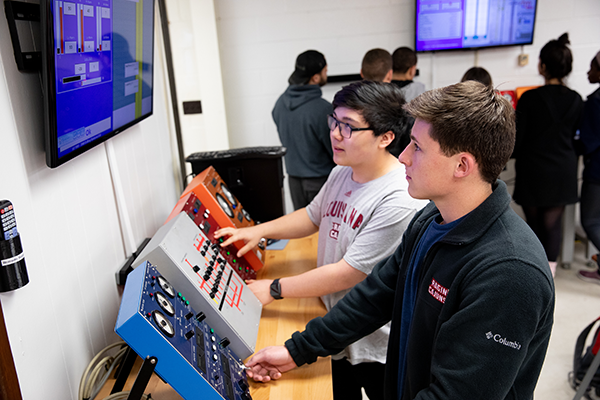The University of Louisiana at Lafayette has launched a concentration for petroleum engineering majors preparing for jobs in an oil and gas industry that increasingly relies on evolving technology for efficient, safe and environmentally sound exploration and production.
Registration is under way for UL Lafayette petroleum engineering majors who pursue the College of Engineering’s new smart oilfield concentration. Courses for the concentration will begin this fall. It is the only program of its kind in the country, said Dr. Ahmed Khattab, dean of the University’s College of Engineering.
The smart oilfield concentration will integrate the college’s current petroleum engineering degree program’s sub-surface expertise with smart drilling, machine learning, and data analytics, he explained.
“Its addition is part of our comprehensive plan to address conventional and renewable energy by providing cutting-edge degree programs, minors and concentrations that augment our traditional energy base and meet industry and community needs,” Khattab added.
The smart oilfield concentration features a blend of courses and labs that focus on coding, statistics, machine learning, automation, predictive capabilities, carbon capture, computational fluid dynamics, smart drilling, and the economic feasibility of exploration in specific locations.
The curriculum was developed based on extensive data-driven research, said Dr. Rafael Hernandez, who leads the Department of Petroleum Engineering. It was created with input from professionals who work in an industry that has “undergone a significant transformation in recent years.”
“It now relies on a system of sensors, networks, and integrated operations that generate and communicate field and data analyses to ensure more environmentally friendly, safe and cost-efficient oil exploration, production and management,” Hernandez said.
The new smart oilfield concentration is among nine concentrations the college has added in the last two years to address industry trends and needs in fields growing faster than the national average, he added.
According to U.S. Bureau of Labor Statistics, employment opportunities for petroleum engineers is projected to increase 8 percent through 2029. Employment opportunities for engineers is projected to increase 6 percent through 2029.
In addition to smart oilfield, the new concentrations are bioengineering; water resources and environmental engineering; secure smart systems; power and sustainable energy; computer engineering; autonomous and robotic systems; sustainable energy systems; and engineering management.
“These are strategic additions implemented to ensure we continually give our graduates the knowledge and skills they will need for the jobs they want, and that will position them to thrive and advance in their careers,” Khattab said.
Photo caption: UL Lafayette’s College of Engineering has launched a smart oilfield concentration for petroleum engineering majors. The program, the only of its kind in the nation, is among nine new concentrations the concentration has established in the last two years. Photo credit: Doug Dugas / University of Louisiana at Lafayette
